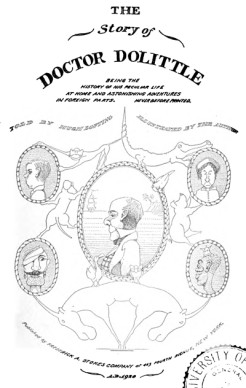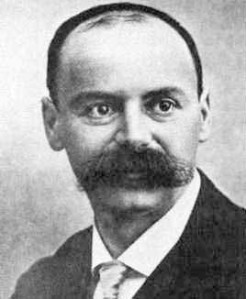Great accomplishments in the trenches
/
“Don't say you don't have enough time. You have exactly the same number of hours per day that were given to Helen Keller, Pasteur, Michaelangelo, Mother Teresa, Leonardo da Vinci, Thomas Jefferson, and Albert Einstein.”- H. Jackson Brown, Jr.
That is my favorite quote, and everyday of my life I attempt to live and breathe these words.
I am not always successful. There are times when I get lazy. There are days in which I fail to accomplish my goals. There are hours that I wish I could have back. But the one thing I never do is make an excuse for not accomplishing a goal or completing a task.
H. Jackson Brown was right. I have just as much time in the day as Jefferson or Einstein or Keller. And I have more labor-saving devices than they could ever imagine.
My only complaint with Brown’s quote:
He left two notable people off his list: Lofting and Schwarzschild.
In fact, I think these two men might be more impressive and more apropos than anyone else on Brown’s list.
Here’s why:
When people tell me that they don’t have enough time to write their great American novel or are waiting for a sabbatical or for their kids to get older before they begin writing, I laugh.
If you really want to write, you will find the time.
Lofting and Schwarzschild are perfect examples of this.
Hugh Lofting wrote the first Doctor Doolittle novel, The Story of Doctor Doolittle, from the trenches during World War I when actual news “was either too horrible or too dull to bear.” He wrote the first book as a series of illustrated letters to his children, so that they could continue to hear their father’s voice while he was stationed in Europe, fighting the Germans.
Lofting would write a total of twelve Doolittle novels over a thirty year period, and his second, The Voyages of Doctor Doolittle, went on to win the the prestigious Newbury Award.
It all began in an English trench amidst bullets and artillery shells and mustard gas.
Meanwhile, fighting in the same war on the Russian front, huddled in a trench similar to that of Lofting’s, German physicist Karl Schwarzschild provided the first exact solution to the Einstein field equations of general relativity for “the limited case of a single spherical non-rotating mass,” which led to prediction of the existence of black holes.
In a letter to Einstein written from his trench, Schwarzschild wrote:
As you see, the war treated me kindly enough, in spite of the heavy gunfire, to allow me to get away from it all and take this walk in he land of your ideas.
In 1916, Einstein wrote back to Schwarzschild on his results:
I have read your paper with the utmost interest. I had not expected that one could formulate the exact solution of the problem in such a simple way. I liked very much your mathematical treatment of the subject. Next Thursday I shall present the work to the Academy with a few words of explanation.
Schwarzschild would die from pemphigus a year later while stationed on the Russian front, but his accomplishments are revered and relevant to physics to this day.
All of this accomplished in the midst of a World War.
During my last book tour, a woman told me that she was waiting for “just the right desk before she got started on her book.”
I laughed at her statement, and I fear that I may have offended her, but what would writers like Lofting or Schwarzschild have accomplished if they waited for the proper seating apparatus to arrive in their trench?
What would they think of someone who was not working for want of a proper desk?
Not much, I would imagine.

